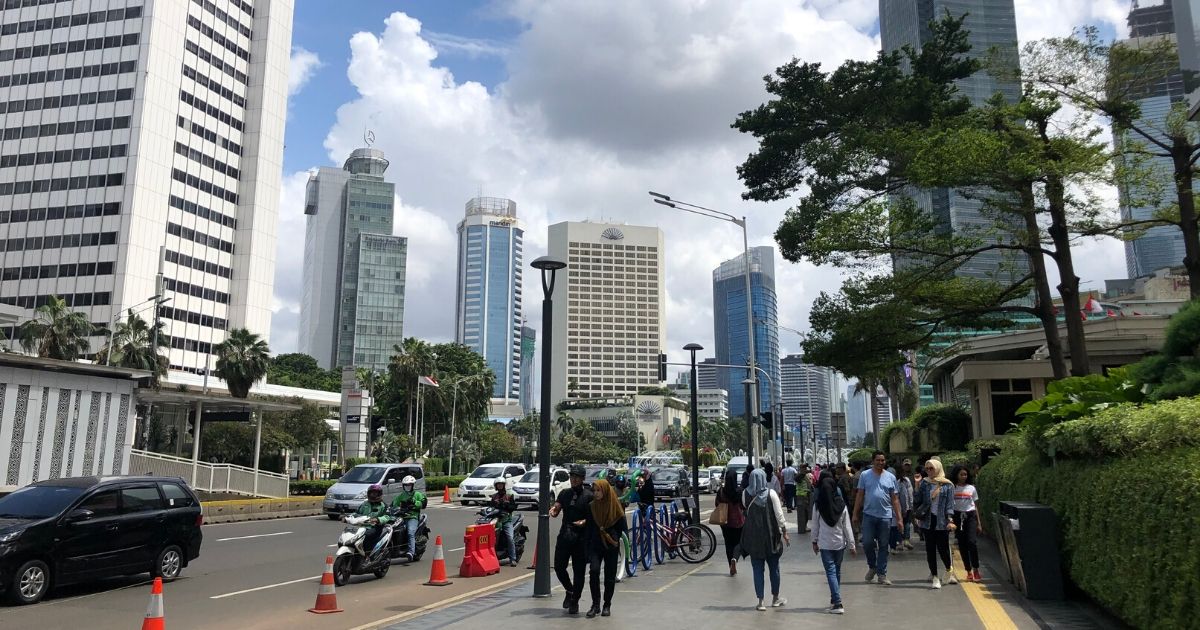President Joko Widodo yesterday signed the hugely controversial Job Creation Law, thus removing numerous bureaucratic barriers to foreign recruitment in the country.
The draft for the Job Creation Law (now designated as Law No. 11/2020) curiously underwent several changes even after it was approved by the House of Parliament (DPR) a month ago, but articles regarding foreign workers and investment have stayed the same, which goes to show that the issue is among the cornerstones of the law.
The Job Creation Law has, in essence, simplified the recruitment process of foreign workers, erasing several document requirements previously outlined in Law No. 13/2003 on Manpower. Where the latter required that a prospective employer of a foreign worker obtain a number of documents, such as a written permit signed a minister or elected official, a limited stay visa (VITAS), and an Expatriate Placement Plan (RPTKA), now only an RPTKA, validated by the central government, is required.
The Job Creation Law also widened the scope for those exempted by the requirement above. Previously, only diplomatic or consular employees were exempted under the Manpower Law, but now company directors, board members, shareholders, startup employees, researchers, and those conducting business visits have been added to the list.
As for RPTKA itself, the Manpower Law previously required that it contained details of employment such as type and length of employment. Under the Job Creation Law, details about RPTKA were removed, thus opening the way for a future regulation to streamline the placement plan.
The Job Creation Law also removed Article 44 of the Manpower Law, which ruled that foreign workers must abide by terms of their employment and fulfill competency standards. In 2018, a Presidential Decree controversially ruled that this should include a requirement to learn Bahasa Indonesia, though its enforcement was practically nonexistent (as we predicted).
Employers are still required to appoint a local “companion employee” for every foreign worker hired, the former of whom would receive transferrable skills and technology from the latter during the duration of their employment. However, the exemption list to this requirement has changed from “board directors and commissioners” in the Manpower Law to foreign workers in “certain job positions” in the Job Creation Law.
Furthermore, the Job Creation Law still prohibits foreigners from taking up positions related to the management of human resources, which was prohibited under the Manpower Law. At the conclusion of employment, employers are still required to facilitate the return of a foreign worker to their home country.
Further rules regarding foreign employment will be outlined in future Government Regulations.
While the Job Creation Law eases many requirements related to foreign employment, the law continues to draw intense criticism over fears that it would erode workers’ rights and be damaging to the environment. Its passage into law was also rushed, as evidenced by the fact that the “final” draft underwent several changes before Jokowi signed it into law yesterday.
Despite the revisions, the law still contains numerous discrepancies so it wouldn’t be a surprise if it attracts more mass protests and legal challenges in the future. Meanwhile, opponents of the law would likely use the easing of foreign employment requirements to further stoke xenophobic sentiments that already surround the law.





Reader Interactions